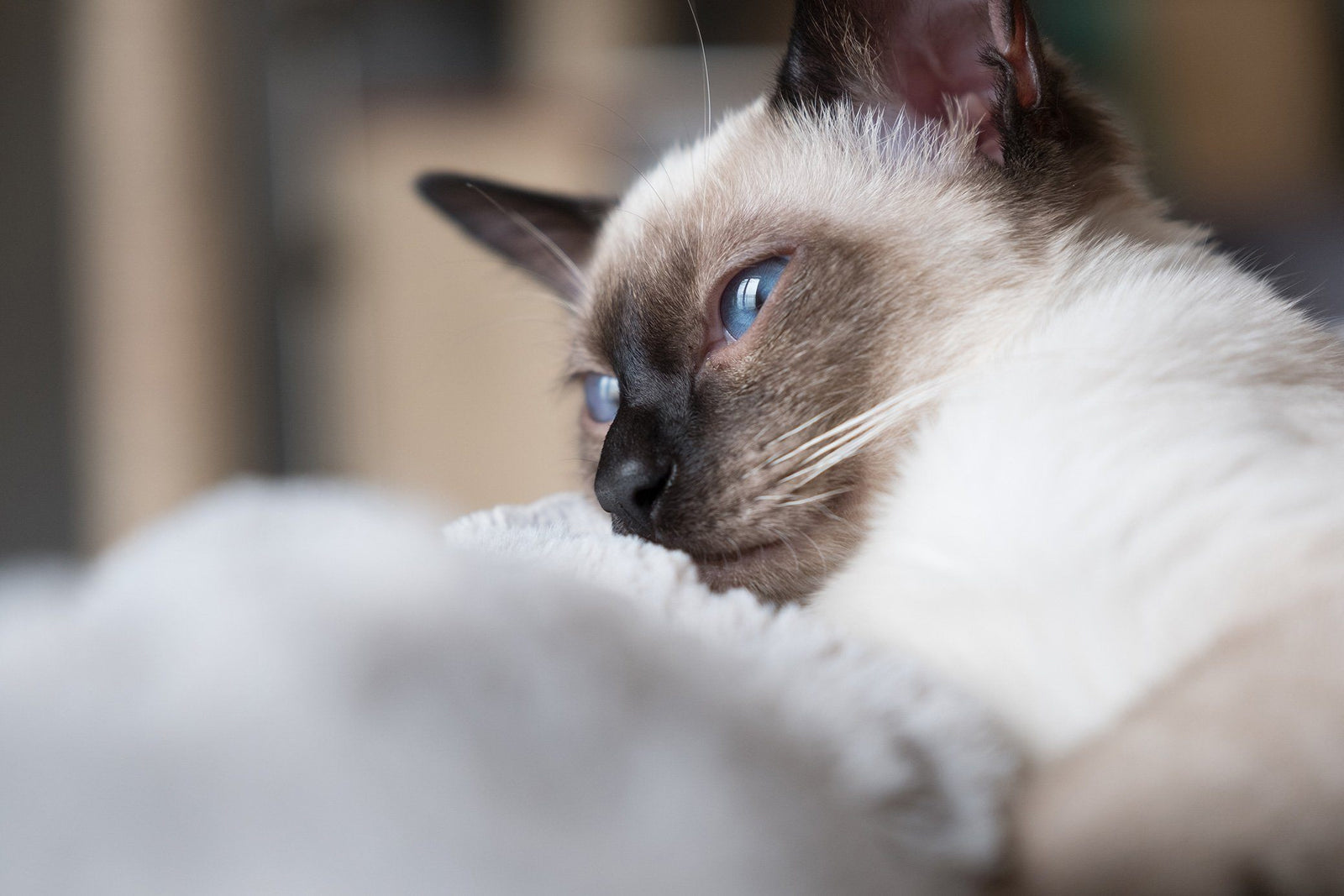
It's hard to picture your adorable kitten becoming an old, gray-haired cat one day, but as acat owner, you know the day will come and you may even think fondly of her as a grandma cat. Sadly, as our beloved fur-babies get older, their risks of developing age-related diseases or health conditions - like cat dementia - heighten.

Cat dementia (also known as feline cognitive dysfunction) is relatively common among senior cats. According to the ASPCA, "It’s estimated that cognitive decline—referred to as feline cognitive dysfunction, or FCD—affects more than 55% of cats aged 11 to 15 years and more than 80% of cats aged 16 to 20 years."
If you've got a older cat at home, educating yourself about the potential health risksof cognitive decline will better prepare you to deal with them and detect them as early as possible.
Here's a breakdown of what feline cognitive dysfunction is, symptoms, and how to treat your beloved aging cat.
What Is Cat Dementia?
Cat dementia is similar to human Alzheimer's disease.The decline in cognitive function can cause yourelderly cat to experience memory loss, behavioral changes, and in some cases hearing or vision loss.
According to Hills Pet Nutrition, "Like any other organ, the brain deteriorates with age. The aging feline brain often starts to show signs of wear and tear between the ages of 10 to 15, after which these signs may seem to accelerate as the disease progresses and the signs become more noticeable."
Since FCD is highly common in older cats, cat parents should look out for symptomsand pay closer attention to behavioral changes as their cats approach age 10 to catch it as soon as possible.
What Are the Symptoms of Cat Dementia?
Every cat is different and no two cases offeline dementia will be exactly the same, but there are common signs that may signal something's wrong and help you detect FCD. A few indicatorsof cognitive impairment linked to FCDare:
- Unprompted loud vocalization
- Avoiding social interaction with other cats
- Changes in potty patterns
- Changes in sleeping patterns
- Forgetting where her litter box is
According to the Cornell University College of Veterinary Medicine, the behavioral signs of cognitive dysfunction in an elderly cat can include:
- Spatial disorientation
- Wandering away from home into unfamiliar territory
- Lack of interest in playing
- Excessive sleeping
- Altered cycles of sleep and wakefulness
- Long periods of staring blankly into space or at walls
- Indifference to food and water
- Urinating and defecating outside the litter box
- Seemingly unprompted episodes of loud vocalizing, frequently in the middle of the night

If you notice symptoms like these in your cat, taking her to the vet can help you rule out any underlying health conditions or illnesses before concluding that FCD may be the culprit. Your vet may also have professional advice to share with you about caring for your senior cat and her unique needs.
Since cat dementia isn't a one-size-fits-all disease, yourveterinarian can give you specific information about your cat and what you can do to help her through her hard times.Has your kitty’s eating patterns changed and you are now wondering, “why would a cat stop eating?” Or, have you noticed a rapid shift in your cat’s attention span? With any changes in behavior that you may believe are negatively affecting kitty’s brain function, it’s important to consult with a professional as exams may be required to pinpoint the cause.
How Cat Dementia is Treated
You keep your adult cat feeling young for as long as possible by making sure her brain is stimulated. Help exercise her brain with play. Try a cat treat puzzle and allow her to sniff out her favorite snack or hide treats around your home to send her on a scavenger hunt.
The less she's using her brain, the more her brain is going to want to slow down as she gets older.
Unfortunately, since dementia is caused by the aging of the brain, there isn't a cure for FCD and it can't be undone. However, you can help yourolder cat maintain a wholesome lifestyle to keep her healthy with a clean, balanced diet, and not making sudden changes to her environment.Using a variety of litter box cleaning hacks, it’s especially important to maintain a tidy waste area for your kitty.
If you've got a senior cat at home, give her a big hug. Have you ever experienced cat dementia as acat owner? If so, please share your story and advice with other cat parents in the comments.
